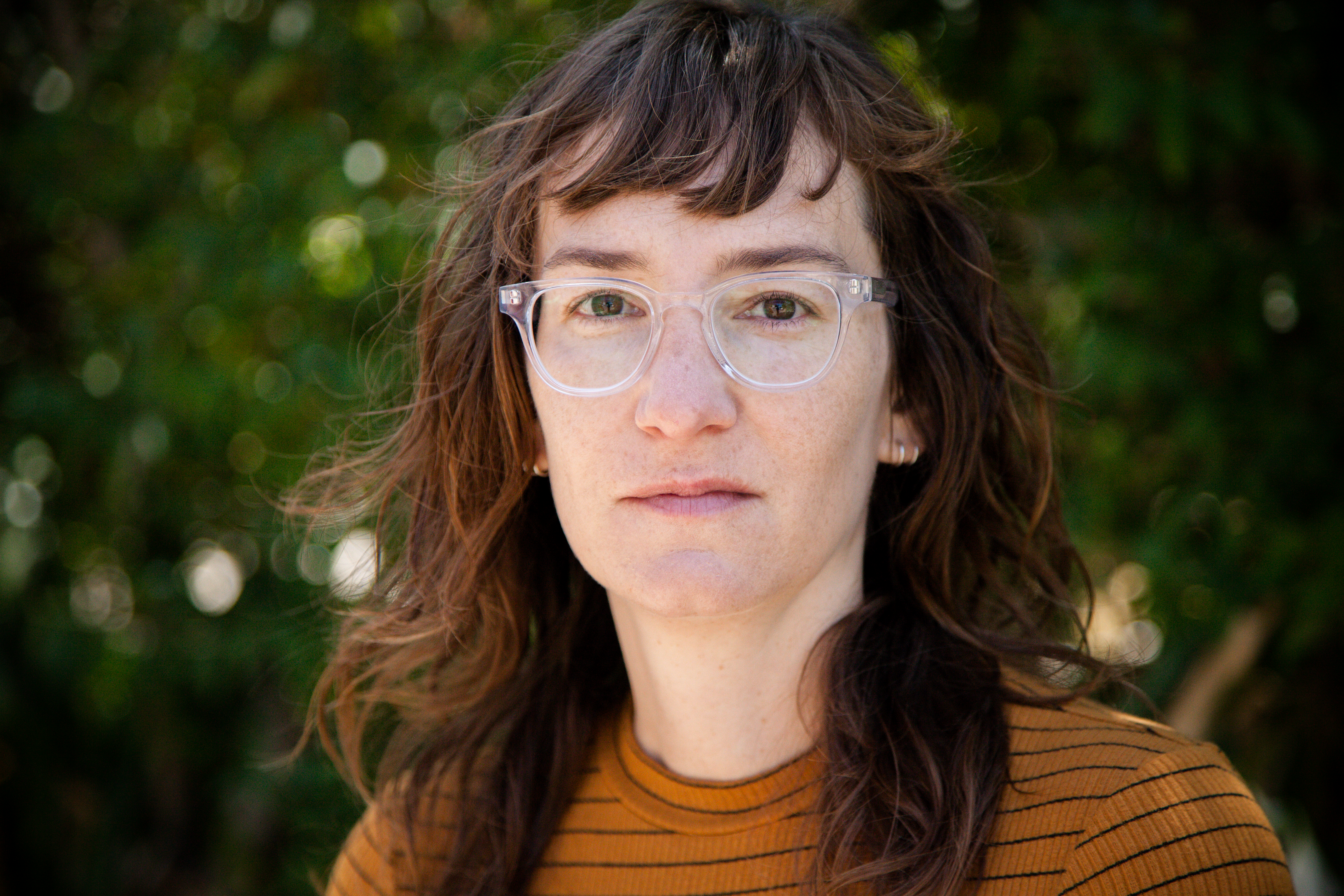
“I’m grateful to be alive despite how fucked up everything is and I try to be conscious of the positive and beautiful things around me. Access to and enjoyment of that beauty is part of what we’re fighting for. Including those moments in the poem is a way of saying these feelings are possible, and we’ve got to have more.”
Three Options Alli Warren Has Considered When Out of Milk:
Going to the store
Getting pregnant
Milking a bottle brush tree
Out back where Alli Warren lives in El Cerrito, CA, there is a lemon tree. The summers I’ve visited her and her partner, Brandon, I’ve made a point to go to their small back patio and take a picture with it. At that time of the year, the lemons are so fragrant and bright I feel sharpened to their nature just standing near, reset to the environment outside of whatever shifting landscape of work-travel I am always in the middle of outside of NYC, where I live.
The poems of Alli’s newest book, Little Hill, are wild, abundant with the natural beauty of a language that attends to her images with fierce imperative and effecting a nurturing cool, poems “bathing in the backwash of our cities” that later assure “[if] I love you I will always love you…” There is a naturalism to the poems of Little Hill, a departure from the hyper-mobile, shorter poems of her previous books, unfolding an ecology of ideas yielded from Alli’s wry observations and expansive thinking. Speaking with her over the phone in January, Alli described to me how some of the poems in Little Hill are pauses or fields and how from here the poem lengthens in line and in form. These poems, especially now, return me to that environment beyond the confines of my immediate everyday, mindful of my connection to the language and life greater than my own but no less fragile.
—Ted Dodson
ALLI WARREN: I was late to our call because I have this new job. For the first time in ten years, I’m having that new job experience of not knowing how to do anything and the simplest thing taking forever. It’s been busy, and I haven’t had any time to do life maintenance shit on the job. That’s one of the perks of office life I’ve always had, and now I’m worried that’s in the past. It’s like, “You mean I have to read the news and pay my bills on my ‘off’ hours?”
BLVR: Absolutely. And making time on the job to write poems is a classic.
AW: I can edit sometimes,...
You have reached your article limit
Sign up for a digital subscription and continue reading all new issues, plus our entire archives, for just $1.50/month.
Already a subscriber? Sign in




